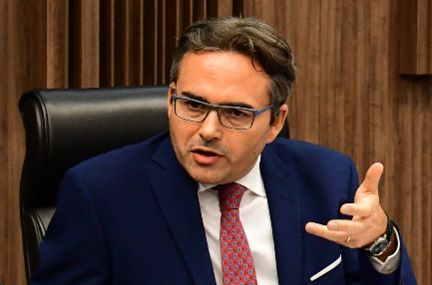Studying at the University of Verona
Here you can find information on the organisational aspects of the Programme, lecture timetables, learning activities and useful contact details for your time at the University, from enrolment to graduation.
Academic calendar
The academic calendar shows the deadlines and scheduled events that are relevant to students, teaching and technical-administrative staff of the University. Public holidays and University closures are also indicated. The academic year normally begins on 1 October each year and ends on 30 September of the following year.
Course calendar
The Academic Calendar sets out the degree programme lecture and exam timetables, as well as the relevant university closure dates..
| Period | From | To |
|---|---|---|
| 1° periodo di lezioni | Oct 3, 2016 | Dec 16, 2016 |
| Periodo riservato ad eventuali recuperi di lezioni - dicembre 2016 | Dec 17, 2016 | Dec 20, 2016 |
| 2° periodo di lezioni - febbraio/aprile 2017 | Feb 10, 2017 | Apr 10, 2017 |
| 2° periodo di lezioni - aprile/maggio 2017 | Apr 19, 2017 | May 9, 2017 |
| Periodo riservato ad eventuali recuperi di lezioni - maggio 2017 | May 10, 2017 | May 11, 2017 |
| Session | From | To |
|---|---|---|
| Sessione straordinaria 16/17 - studenti f.c. - dicembre 2016 | Dec 21, 2016 | Dec 23, 2016 |
| 1° appello - Sessione invernale 16/17 | Jan 10, 2017 | Jan 19, 2017 |
| 2° appello - Sessione invernale 16/17 | Jan 30, 2017 | Feb 8, 2017 |
| Sessione straordinaria 16/17 - studenti f.c. - aprile 2017 | Apr 11, 2017 | Apr 13, 2017 |
| 1° appello - Sessione estiva 16/17 | May 12, 2017 | May 22, 2017 |
| 2° appello - Sessione estiva 16/17 | Jun 8, 2017 | Jun 17, 2017 |
| 3° appello - Sessione estiva 16/17 | Jul 6, 2017 | Jul 15, 2017 |
| 1° appello - Sessione autunnale 16/17 | Aug 28, 2017 | Sep 6, 2017 |
| 2° appello - Sessione autunnale 16/17 | Sep 21, 2017 | Sep 30, 2017 |
| Session | From | To |
|---|---|---|
| Termine presentazione tesi di laurea - ottobre 2016 | Sep 23, 2016 | Sep 23, 2016 |
| Sessione autunnale - 15/16 | Oct 24, 2016 | Oct 25, 2016 |
| Termine presentazione tesi di laurea - febbraio 2017 | Jan 10, 2017 | Jan 10, 2017 |
| Sessione invernale - 15/16 | Feb 9, 2017 | Feb 9, 2017 |
| Termine presentazione tesi di laurea - marzo 2017 | Feb 24, 2017 | Feb 24, 2017 |
| Sessione invernale - marzo 2017 | Mar 29, 2017 | Mar 31, 2017 |
| Termine presentazione tesi di laurea - giugno 2017 | May 23, 2017 | May 23, 2017 |
| Sesssione estiva - 16/17 | Jun 26, 2017 | Jun 27, 2017 |
| Period | From | To |
|---|---|---|
| Festa di Ognissanti | Nov 1, 2016 | Nov 1, 2016 |
| Festa dell'Immacolata Concezione | Dec 8, 2016 | Dec 8, 2016 |
| Vacanze di Natale | Dec 24, 2016 | Jan 6, 2017 |
| Vacanze di Pasqua | Apr 14, 2017 | Apr 18, 2017 |
| Festa della Liberazione | Apr 25, 2017 | Apr 25, 2017 |
| Festa dei Lavoratori | May 1, 2017 | May 1, 2017 |
| Festa del Santo Patrono - San Zeno | May 21, 2017 | May 21, 2017 |
| Festa della Repubblica | Jun 2, 2017 | Jun 2, 2017 |
Exam calendar
Exam dates and rounds are managed by the relevant Law Teaching and Student Services Unit.
To view all the exam sessions available, please use the Exam dashboard on ESSE3.
If you forgot your login details or have problems logging in, please contact the relevant IT HelpDesk, or check the login details recovery web page.
Academic staff
 giovanni.alberti@univr.it
giovanni.alberti@univr.it
 mariacaterina.baruffi@univr.it
mariacaterina.baruffi@univr.it

Dalla Massara Tommaso
 tommaso.dallamassara@univr.it
tommaso.dallamassara@univr.it
 +39 045 8028810
+39 045 8028810
 roberto.flor@univr.it
roberto.flor@univr.it
 rita.maggi@univr.it
rita.maggi@univr.it

Manzoni Elena
 elena.manzoni@univr.it
elena.manzoni@univr.it
 8783
8783

Patrono Paolo
 paolo.patrono@univr.it
paolo.patrono@univr.it
 +39 045 8028813
+39 045 8028813
 lorenzo.salvatore@univr.it
lorenzo.salvatore@univr.it
 marcello.stella@univr.it
marcello.stella@univr.it
Strano Silvana
 silvana.stranoligato@univr.it
silvana.stranoligato@univr.it
 +39 045 8028856
+39 045 8028856
 claudio.tomazzoli@univr.it
claudio.tomazzoli@univr.it
Study Plan
The Study Plan includes all modules, teaching and learning activities that each student will need to undertake during their time at the University.
Please select your Study Plan based on your enrollment year.
1° Year
| Modules | Credits | TAF | SSD |
|---|
Principles of economics
Roman Law Institutions
History of Medieval and Modern Law
2° Year activated in the A.Y. 2017/2018
| Modules | Credits | TAF | SSD |
|---|
A course to be chosen among the followingA course to be chosen among the following3° Year activated in the A.Y. 2018/2019
| Modules | Credits | TAF | SSD |
|---|
Foreign language4° Year activated in the A.Y. 2019/2020
| Modules | Credits | TAF | SSD |
|---|
A course to be chosen among the following5° Year activated in the A.Y. 2020/2021
| Modules | Credits | TAF | SSD |
|---|
Five courses to be chosen among the following| Modules | Credits | TAF | SSD |
|---|
Principles of economics
Roman Law Institutions
History of Medieval and Modern Law
| Modules | Credits | TAF | SSD |
|---|
A course to be chosen among the followingA course to be chosen among the following| Modules | Credits | TAF | SSD |
|---|
Foreign language| Modules | Credits | TAF | SSD |
|---|
A course to be chosen among the following| Modules | Credits | TAF | SSD |
|---|
Five courses to be chosen among the followingLegend | Type of training activity (TTA)
TAF (Type of Educational Activity) All courses and activities are classified into different types of educational activities, indicated by a letter.
Criminal law 2 (2018/2019)
Teaching code
4S01102
Academic staff
Coordinator
Credits
9
Language
Italian
Scientific Disciplinary Sector (SSD)
IUS/17 - CRIMINAL LAW
Period
2° periodo di lezioni - aprile/maggio 2019, 2° periodo di lezioni - febbraio/aprile 2019
Learning outcomes
The course is considered the natural development of Criminal Law – General Part, which is the prerequisite in order to study the general categories and basis of the general part of the Criminal Code.
The aim of the course is to provide the elements of the special part of the Criminal Law and to lead the student to the technical interpretation and implementation of the specific criminal offences, also the light of their systematic outline, constitutional principles and supranational sources.
The aim is also to study the concrete perspective of Criminal Law, as a system of criminal offences protecting fundamental legal interests. Students will receive the theoretical knowledge in order to understand and analyse case studies, also in critical perspective.
In particular the course will be divided into different parts, starting from the general introduction of the special part of the Criminal Law, taking into consideration that many criminal offences are provided in special laws. Second: the study will be focused on the structure of the Criminal Code with particular attention to the partial reform. Third: students will analyse and sudy specific criminal offences, also in critical perspective, taking into account general questions, in particular: offences against the public administration and the private sphere, offences against the individual persons, offences against the property, which are three specific sectors of the “special part” of the criminal code, which are relevant for acquire the ability to solve concrete questions and cases in sectors that have been also object of recent legislative reforms.
Finally students will analyse the system of criminal liability of legal persons.
As result of the course the students should be able to set correctly the relationship between general and special parts of criminal law to solve cases in the mentioned sectors of the special part of the criminal code recognizing their constitutive elements and circumstances, the related criteria for the attribution of the penal responsibility, the eventual concurrence of more offences, the legal protected interests.
Program
The course is divided into two modules:
Part I
General introduction of the special part of Criminal Law and relationship with the general part; special part of Criminal Code and special laws; structure of the Criminal Code; partial reforms of the Criminal Code (IV, IX) and new parts (VI bis, IX bis).
General considerations about criminal offences against State, Public Administration, Administration of Justice, Public Order; Public Safety; Public Confidence; Public Economy; Family; Person; Property.
Criminal Offences against life and individual persons (artt. da 575 a 593 c.p.), against personal freedom (artt. da 605 a 609-undicies c.p.), against moral freedom (art. 610, 612 e 612-bis c.p.)
Part II
Criminal offences against Public Administration: definition of public official (artt. da 357 a 360 c.p.), crimes against public property, functional duties (artt. da 314 a 335-bis c.p.), crimes against public administration committed by private persons (artt. 336, 337, 340, 341-bis, 346, 346-bis, 348, da 353 a 356, 393-bis c.p).
Criminal offences against Property (artt. da 624 a 630; artt. 635, 638, 640, 640-bis, 641, 642, 643, 644, 644-bis, 644-ter, 646, 648, 648-bis, 648-ter, 648-ter.1, 648-quater, 649 c.p.)
Criminal Corporate Liability.
Teaching methods
For students who will attend the course the methods will consist in frontal lectures about the basis and fundamental categories of Criminal Law, the interpretation of the criminal offences and their implementation. Specific workshops or seminar could be organised, in particular about case studies on the recent, important and different interpretation in jurisprudence or on criminal offences reformed by the legislator. After online registrations students may access to e-learning materials, or specific scientific works and case studies.
With regards to students who will not attend the course, the methods consist in the support of professors for an up to date study, available also through online information. After online registrations students may access to e-learning materials, or specific scientific works and case studies.
Recommended books
1) FIANDACA G., MUSCO E., Diritto penale. Parte speciale - Vol. II – tomo I: I delitti contro la persona, 4^ed., Zanichelli, Bologna, 2013
oppure
MANTOVANI, Diritto penale. Parte speciale - I. Delitti contro la persona, Cedam, Padova, 2016, (Chap. II. Delitti contro la vita e l’incolumità individuale – Chap. IV- sez. II: I delitti contro la libertà fisica, sez. III: I delitti contro la libertà morale – Chap. V I delitti contro la libertà e l’intangibilità sessuale) Chap. IV sez. I: I delitti di liberticidio]
2) FIANDACA G., MUSCO E., Diritto penale. Parte speciale - Vol. II - tomo II: I delitti contro il patrimonio, 7^ ed., Zanichelli, Bologna, 2015.
3) FIANDACA G., MUSCO E , Diritto penale. Parte speciale, Vol. I, 5^ ed., Zanichelli, Bologna, 2012: Cap. 2 - Delitti contro la pubblica amministrazione, and “Addenda” about the new law of 6.11.2012, n. 190, and the new law of 27.11.2015, n. 69.
| Author | Title | Publishing house | Year | ISBN | Notes |
|---|---|---|---|---|---|
| Mantovani | Diritto penale. Parte speciale I. Delitti contro la persona | Cedam - Padova | 2016 | ||
| FIANDACA G., MUSCO E. | Diritto penale. Parte speciale Vol. II – tomo I: I delitti contro la persona (Edizione 4) | Zanichelli | 2013 | ||
| G. FIANDACA-MUSCO | Diritto penale. Parte speciale. Volume II. I delitti contro il patrimonio. | Zanichelli - Bologna | 2015 |
Examination Methods
The exam is oral and has the following goals, in order to verify:
Level and depth of study and understanding
Language properties
Capacity to connect systematically the understanding
Analitycal and arguing ability
Students who attend the course can develop also short papers on specific topics and in agreement with professors. Papers will be discussed during the exam
Evaluation runs on a scale from 0 to 30 (successful completion of the examination starts from 18)
Teaching materials e documents
-
 programma e testi consigliati (ita/ingl)
(octet-stream, it, 28 KB, 21/08/18)
programma e testi consigliati (ita/ingl)
(octet-stream, it, 28 KB, 21/08/18)
Type D and Type F activities
Le attività che consentono l’acquisizione dei crediti riservati alle attività formative a libera scelta dello studente (TAF D) sono le seguenti:
• Un insegnamento previsto nell’elenco delle attività formative (TAF D) allegato al piano didattico del corso di laurea Magistrale in Giurisprudenza;
• Un insegnamento attivato nei Corsi di studi afferenti al Collegio di Giurisprudenza;
• Un laboratorio didattico attivato nei Corsi di studi afferenti al Collegio di Giurisprudenza;
• Un laboratorio didattico attivato nei Corsi di studi afferenti al Dipartimento di Scienze Giuridiche;
• Un insegnamento previsto dall’Offerta Formativa di Ateneo, non impartito nell’ambito dei corsi di studi afferenti al Collegio di Giurisprudenza: il riconoscimento dei crediti acquisiti sarà subordinato alla preventiva presentazione di coerenti programmi formativi valutati dalla Commissione istruttoria per la didattica e approvati dal Collegio didattico.
• Attività formative organizzate dai singoli docenti del Collegio di Giurisprudenza o del Dipartimento di Scienze Giuridiche: previa approvazione del Collegio ad esse verrà attribuito, dopo un’apposita verifica, un credito per ogni 6 ore di frequenza obbligatoria;
• Attività formative che implicano la partecipazione a convegni o seminari organizzati sotto il “logo” del Dipartimento di Scienze Giuridiche o dell’Ateneo: devono essere preventivamente approvate dal Collegio di Giurisprudenza indicando un docente di riferimento del Collegio di Giurisprudenza ovvero del Dipartimento di Scienze Giuridiche. Un credito per ogni giornata di convegno o di seminario si acquisisce dopo apposita verifica che dimostri l’avvenuta fruizione culturale del tema del convegno o del seminario.
Le attività che consentono l’acquisizione dei crediti riservati alle ulteriori attività formative (TAF F) sono le seguenti:
• Informatica (3 cfu)
Al link https://www.univr.it/it/i-nostri-servizi/segreterie-studenti/giurisprudenza#categdoc_7103 la modulistica per l'inserimento di attività non selezionabili in autonomia dallo studente in sede di compilazione del piano degli studi.
| years | Modules | TAF | Teacher |
|---|---|---|---|
| 4° 5° | Civil enforcement law | D |
Alberto Maria Tedoldi
(Coordinator)
|
| 4° 5° | Family Law | D |
Alessandra Cordiano
(Coordinator)
|
| 4° 5° | Ecclesiastical law | D |
Giuseppe Comotti
(Coordinator)
|
| 4° 5° | Economics, financial statement and control of Italian healthcare and social care organizations | D |
Paolo Roffia
(Coordinator)
|
| 4° 5° | Safety and social security | D |
Sylvain Giovanni Nadalet
|
| years | Modules | TAF | Teacher |
|---|---|---|---|
| 4° 5° | Banking law | D |
Giovanni Meruzzi
(Coordinator)
|
| 4° 5° | Safe and security law | D |
Marco Peruzzi
|
| 4° 5° | CRISIS AND INSOLVENCY PROCEEDINGS LAW | D |
Alberto Maria Tedoldi
(Coordinator)
|
| 4° 5° | Company Economics | D |
Paolo Roffia
(Coordinator)
|
| 4° 5° | Economics and economic problems of the art market | D |
Cristina Spiller
(Coordinator)
|
| 4° 5° | International criminal law | D |
Lorenzo Picotti
(Coordinator)
|
| 4° 5° | Juvenile Law | D |
Silvana Strano
(Coordinator)
|
| 4° 5° | Legal Medicine | D |
Domenico De Leo
(Coordinator)
|
| 4° 5° | Sociology of law | D |
Daniele Velo Dalbrenta
(Coordinator)
|
| years | Modules | TAF | Teacher |
|---|---|---|---|
| 4° 5° | Banking law | D |
Giovanni Meruzzi
(Coordinator)
|
| 4° 5° | Safe and security law | D |
Marco Peruzzi
|
| 4° 5° | CRISIS AND INSOLVENCY PROCEEDINGS LAW | D |
Alberto Maria Tedoldi
(Coordinator)
|
| 4° 5° | Company Economics | D |
Paolo Roffia
(Coordinator)
|
| 4° 5° | Economics and economic problems of the art market | D |
Cristina Spiller
(Coordinator)
|
| 4° 5° | International criminal law | D |
Lorenzo Picotti
(Coordinator)
|
| 4° 5° | Juvenile Law | D |
Silvana Strano
(Coordinator)
|
| 4° 5° | Legal Medicine | D |
Domenico De Leo
(Coordinator)
|
| 4° 5° | Sociology of law | D |
Daniele Velo Dalbrenta
(Coordinator)
|
Career prospects
Module/Programme news
News for students
There you will find information, resources and services useful during your time at the University (Student’s exam record, your study plan on ESSE3, Distance Learning courses, university email account, office forms, administrative procedures, etc.). You can log into MyUnivr with your GIA login details: only in this way will you be able to receive notification of all the notices from your teachers and your secretariat via email and also via the Univr app.
Language skills
Graduation
Internships
Internships are aimed at enabling students to gain direct knowledge of the world of work and to acquire specific professional skills.
Internships are carried out under the responsibility of an individual lecturer, and can be carried out in professional firms, public administration bodies and companies recognised by the University of Verona.
Any CFU credits gained by doing internships will be recognised and recorded by the University in accordance with the relevant University regulations in force (Regolamento d’Ateneo per il riconoscimento dei crediti maturati negli stage universitari).
For further information on internships, please go to: https://www.univr.it/it/i-nostri-servizi/stage-e-tirocini.
Student mentoring
Dissertation
Gestione carriere
Student login and resources
Modalità e sedi di frequenza
La frequenza non è obbligatoria.
Maggiori dettagli in merito all'obbligo di frequenza vengono riportati nel Regolamento del corso di studio disponibile alla voce Regolamenti nel menu Il Corso. Anche se il regolamento non prevede un obbligo specifico, verifica le indicazioni previste dal singolo docente per ciascun insegnamento o per eventuali laboratori e/o tirocinio.
È consentita l'iscrizione a tempo parziale. Per saperne di più consulta la pagina Possibilità di iscrizione Part time.
La sede di svolgimento delle lezioni e degli esami è il Palazzo e aule didattiche di giurisprudenza











































